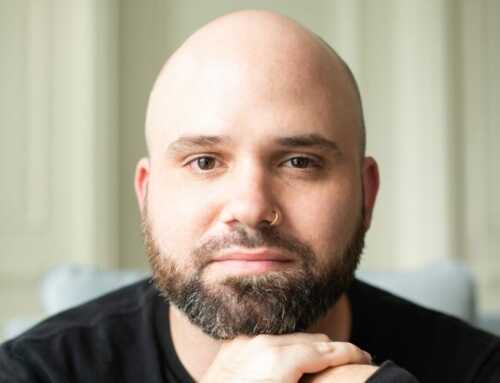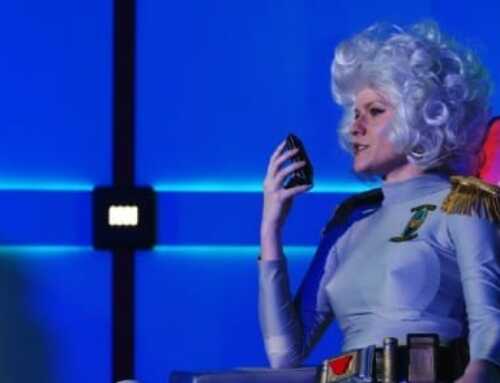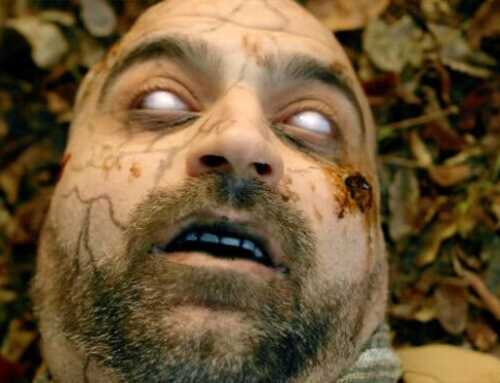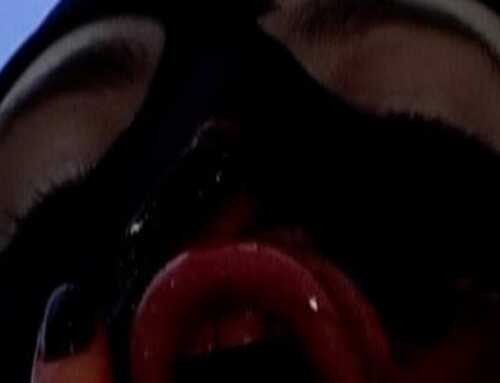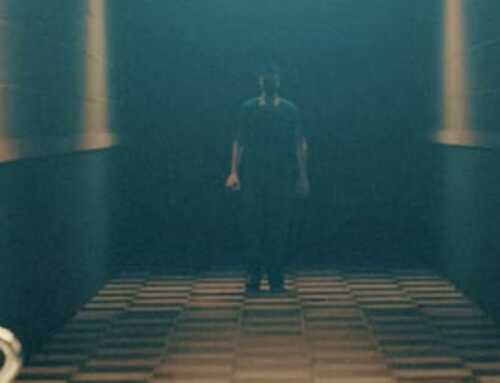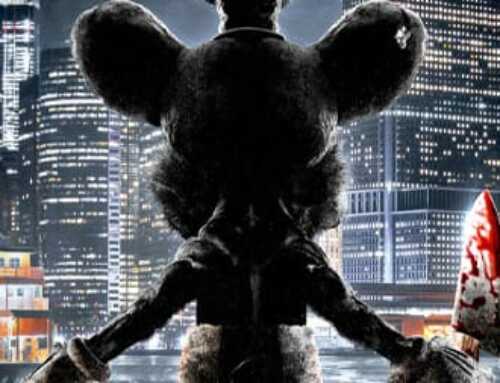Fantasia International Film Festival –All Jacked Up and Full of Worms is a head trip alright. Think Street Trash combined with Frank Henenlotter’s films. Oh, and throw in lots of worms that cause the characters to have hallucinogenic, terrifying visions. The film recently premiered at the Fantasia International Film Festival, and Cinedigm just announced that it has acquired all North American rights to the feature and plans to release it on the company’s horror streaming service Screambox this fall, followed by an exclusive window on Cinedigm’s indie discovery platform Fandor.
We chatted with writer/director, Alex Phillips, and special effects guru Ben Gojer about the splatterfest.
Where did the idea come from for this movie?
Alex: It’s a meditation on psychosis is how I’ve been talking about it. It comes from personal experience and struggles with mental illness and wanting to express those in an emotional and physical way, as opposed to a psychological, realist way. I wanted to turn some of those nightmares and traumas into body horror, worms, and a physical thing that will mess with you.
This movie has a DIY quality and grittiness to it that resembles early 1970s and 1980s horror, like some of Larry Cohen’s early work, or even a movie like Street Trash. What were some of the influences on this film?
Alex: Street Trash and Larry Cohen. I love them. What a crazy writer Cohen was. I’ve been talking a lot about Frank Henenlotter, too, especially his early films like Frankenhooker, Basket Case, and Brain Damage. I haven’t really been talking about the 90s and early aughts American indies that are genre, like Larry Fessenden’s movie Habit. Those low-budget genre films that also have an art influence or are self-expressive really influenced how I thought about tackling a feature film that is also genre. But it also runs the gamut to stuff that’s not even genre. I’ll always talk about Cronenberg, but there’s also Jane Campion and other directors that are a big influence on the type of stories I want to tell.
The city of Chicago really comes alive and feels like a character. Was that intentional?
Alex: When you live in Chicago, it doesn’t look as bad as we portray it. But it does sort of feel like that in February. We seem to have polar vortexes all the time. It’s like a mental space as well as a physical one. I wanted to figure out a way to represent the mental space in the physical. That’s why we ended up in a lot of alleyways and at a beach that has a power plant in the background. The landscape should be as fucked up as the mindscape.
What was the cast’s reaction to shooting a film like this? Were they gung-ho to partake in something this wild that involves sex, drugs, and worms?
Alex: I had a lot of tall orders for everyone involved, cast and crew. Everyone worked hard to achieve crazy stuff that’s pretty tough when you basically have no budget. The cast is all artists in their own right. They were on board for the vision and on board to go on this adventure. I would start off with a conversation. Everyone read the script, and we talked about what we were going to do. I was very clear upfront. Everyone knew what they were getting into. We wanted everyone to be in on the adventure
Ben, you’ve done effects and make-up for several films. What made you want to be involved with a project this experimental?
Ben: I come from a theater background. I met Alex working on a film with a mentor of ours, Spencer Parsons. I connected with Alex pretty quickly because he has a background in playwriting as well. I connected with him while talking about Edward Albee. His voice is something that’s always felt very relatable to me. We made a few other short films before this. Everything I’ve read that he’s written has felt like something I would have written back in the day. I connect to his voice in a strong way, and I connected to this script in a strong way.
I’ve done a lot of make-up effects, blood work, and goo, but I’ve been gravitating towards creatures over the last few years. In theater, I like doing puppets. I make things with my hands because that’s a way for me to express myself. The opportunity for the worms and creatures in this movie was another form of self-expression that I connected to. Also, the darkness of Chicago in the winter, when it’s muddy and wet, is something I know. I connect to that.
Were there any challenges regarding the special effects and the tentacles/worms during the finale? Also, how were those effects created?
Ben: It was all practical. Essentially, it was all practically achieved in camera. There was some puppetry involved. For finger scale puppetry, like the cocoon that descends as part of the ending sequence, I worked with a lot of latex and some other materials. That creature was composed during a couple of different stages. I also worked with plastic bag monsters and water, using gravity to manipulate and create kinetic movement. There were challenges with all of that. We shot a chunk of the movie in March 2020, before COVID happened. We were shut down and then came back at the end of 2020 to shoot. A lot of it was touch and go. We didn’t know what would happen in the next week. We had to figure out how to do things safely and responsibly. We had a space that was big enough for what we were doing, but in terms of the timeline, it was hard to get everything done.
Alex: We had a lot of lofty goals script-wise. To achieve them, we had to learn very quickly how to move the camera to best use the beautiful effects that Ben created. We also had to tell the story and show how the characters were affected by all of this in a tight sequence. We did all of this with limited resources. It was like a big Petri dish of blood, guts, ooze, and worms.
During the ending, when there’s the ooze and worms showering over the characters, we did two takes, but it’s because the effects came out of a giant, long hose. It felt like hours to fill the hose. We only had so many hoses. To clean up and reset is insane. You should only do it once, but we did it twice.
Ben: We had like 100 feet of hose filled with worms. That was a big physics problem for me, figuring out how to get a hose that was small enough to fit in their prosthetic appliances but wide enough so worms could travel through it. I had to try different kinds of worms, lubricants, and pressure systems.
Alex: We had shot a 12-hour day, and then we were up another six hours loading hoses in Ben’s workshop.
Was anyone on set grossed out by the worms?
Alex: Trevor Dawkins signed on. He’s a great actor and has done theater in Chicago. He was totally down for everything. We got him in the room, and there was a worm right in front of his face. He told us he’s deathly afraid of worms. I think it aided in his performance. He’s the one first introduced to the worms. They lay on his chest, and you see a very visceral reaction.
Ben: Trevor is the kind of actor who will put himself through the wringer to get a good performance because he’s really dedicated artist.
Where did the idea come from regarding the creepy sex/baby doll and where did you find the doll?
Alex: We went to a store and bought the doll.
Ben: I gave it a new head that I sculpted. We decided on a look that felt right. We made the doll its own thing.
Alex: I wanted to convey not just body horror and guts. I love blood and guts, but I wanted emotion, anxiety, and discomfort. That’s what keeps me up at night. I wanted to inject that into this movie. I wanted to make a character, like Benny Boom (Dawkins), who is loveable. The stuff he wants and his goals are gross and despicable. They’re bad, but in the end, you’re still rooting for him. My favorite movies are always about complicated characters. They’re about people who do or want all the wrong things, but you still root for them. I wanted to push that idea to the limits and see how far we can go with that type of character. To me, that’s why people should make movies and art. You want to explore the depth of human experience.
What was it like to have the film premiere at Fantasia?
Alex: It was great. I cannot express how thankful we are.
Ben: It’s been a head trip. I felt very humble during the week leading up to the festival. I just felt so grateful to share it with people. Fantasia is the perfect audience for this.
Alex: It’s fun to meet people who seem to get it.
Thank you both for chatting with us, and good luck with the film.


